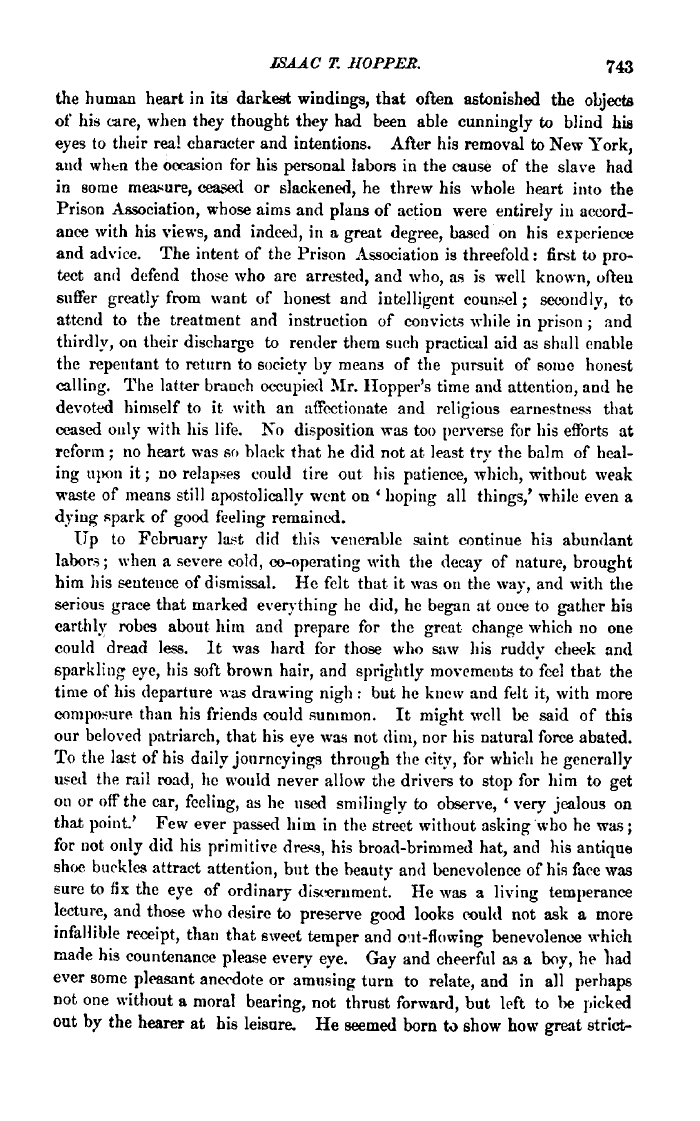 |
||||
 |
||||
| ISAAC T. HOPPEJZ. 743 the human heart in its darkest windings, that often astonished the objects of his care, when they thought they had been able cunningly to blind his eyes to their real character and intentions. After his removal to New York, and when the occasion for bis personal labors in the cause of the slave had in some measure, ceased or slackened, he threw his whole heart into the Prison Association, whose aims and plans of action were entirely in accordance with his views, and indeed, in a great degree, based on his experience and advice. The intent of the Prison Association is threefold: first to protect and defend those who are arrested, and who, as is well known, ofteu suffer greatly from want of honest and intelligent counsel; secondly, to attend to the treatment and instruction of convicts while in prison ; and thirdly, on their discharge to render them such practical aid as shall enable the repentant to return to society by means of the pursuit of some honest calling. The latter branch occupied Mr. Hopper's time and attention, and he devoted himself to it with an affectionate and religious earnestness that ceased only with his life. No disposition was too perverse for his efforts at reform ; no heart was so blank that he did not at least try the balm of healing upon it; no relapses could tire out his patience, which, without weak waste of means still apostolically went on ' hoping all things,' while even a dying spark of good feeling remained. Up to February last did this venerable saint continue his abundant labors; when a severe cold, co-operating with the decay of nature, brought him liis sentence of dismissal. He felt that it was on the way, and with the serious grace that marked even-thing he did, he began at once to gather his earthly robes about him and prepare for the great change which no one could dread less. It was hard for those who saw his ruddy check and sparkling eye, his soft brown hair, and sprightly movements to feel that the time of his departure was drawing nigh : but he know and felt it, with more composure than his friends could summon. It might well be said of this our beloved patriarch, that his eye was not dim, nor his natural force abated. To the last of his daily jonrncyings through the city, for which he generally used the rail road, he would never allow the drivers to stop for him to get on or off the car, feeling, as he used smilingly to observe, ' very jealous on that point' Few ever passed him in the street without asking who he was; for not only did his primitive dress, his broad-brimmed hat, and his antique shoe buckles attract attention, but the beauty and benevolence of his face was sure to fix the eye of ordinary discernment He was a living temperance lecture, and those who desire to preserve good looks could not ask a more infallible receipt, than that sweet temper and out-flowing benevolence which made his countenance please every eye. Gay and cheerful as a boy, he liad ever some pleasant anecdote or amnsing turn to relate, and in all perhaps not one without a moral bearing, not thrust forward, but left to be picked out by the hearer at bis leisure. He seemed born to show how great strict- |